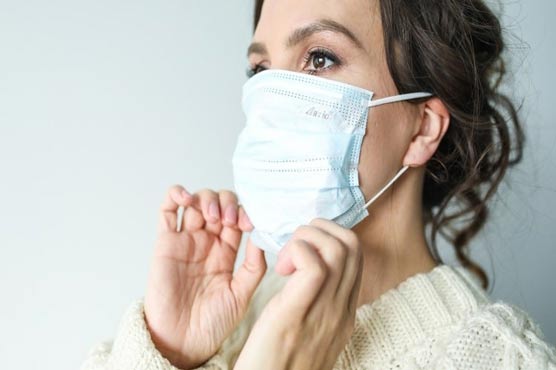Precautionary, respiratory hygienic practices must to avoid COVID 19 spread: WHO

the people should adopt protective measures if they live in an area with the COVID-19 epidemic.
ISLAMABAD (APP) - As the deadly novel Coronavirus (COVID 19) continues to stalk the globe, stoking fears among the world community, the world’s leading public health agency World Health Organization (WHO) has advised the people to adopt preventive measures to control its further outbreak.
“Every effort to contain the virus and slow the spread saves lives. These efforts give health systems and all of society much needed time to prepare, and researchers more time to identify effective treatments and develop vaccines,” the WHO says in one of its statement.
The WHO reminded all the countries and communities that the spread of this virus can be significantly slowed or even reversed through the implementation of robust containment and control activities.
According to WHO advisory posted on its website, the people should adopt protective measures if they live in, or travel to an area with COVID-19 epidemic.
The new Coronavirus is a respiratory virus which spreads primarily through droplets generated when an infected person coughs or sneezes, or through droplets of saliva or discharge from the nose.
“The best way to protect yourself against COVID-19 is by frequently cleaning your hands. By doing this you eliminate viruses that may be on your hands and avoid infection that could occur by then touching your eyes, mouth, and nose,” it says.
The WHO cautions that people of all ages can be infected by the new Coronavirus. Older people, and people with pre-existing medical conditions (such as asthma, diabetes, heart disease) appear to be more vulnerable to becoming severely ill with the virus.
“WHO advises people of all ages to take steps to protect themselves from the virus, for example by following good hand hygiene and good respiratory hygiene,” it says.
The new Coronavirus is a virus and, therefore, antibiotics should not be used as a means of prevention or treatment. However, if you are hospitalized for the COVID 19, you may receive antibiotics because bacterial co-in date, there is no specific medicine recommended to prevent or treat the new Coronavirus.
However, those infected with the virus should receive appropriate care to relieve and treat symptoms, and those with severe illness should receive optimized supportive care.
It also busted a myth that to date there has been neither any information nor evidence to suggest that the new Coronavirus could be transmitted by mosquitoes.
It further advises of maintaining at least 1 metre (3 feet) distance between the affected persons or those were coughing or sneezing.
“Make sure you, and the people around you, follow good respiratory hygiene. This means covering your mouth and nose with your bent elbow or tissue when you cough or sneeze. Then dispose of the used tissue immediately.
If you have fever, cough and difficulty breathing, seek medical care early.
Stay home if you feel unwell. If you have a fever, cough and difficulty breathing, seek medical attention and call in advance.
If you are healthy, you only need to wear a mask if you are taking care of a person with suspected COVID 19 infection.”
The COVID 19 has so far spread in almost 135 countries, affecting about 156,789 people, taking the death toll to 5,839. However, the latest encouraging figures showed that a total of 75,937 affected people had been recovered from COVID 19.
The COVID 19 was first detected in Wuhan, China in December last year.
The US Centers for Disease Control and Prevention (CDC) also advises people of keeping a safe distance from those who are sick, besides, limiting close contact and washing hands often.
It further says during a COVID-19 outbreak in a community, the residents must stay at homes as much as possible to further reduce risk of being exposed.
The other precautionary measures it enlists included: avoiding cruise travel and non-essential air travel, washing hands often with soap and water for at least 20 seconds, especially after blowing your nose, coughing, or sneezing, or having been in a public place. If soap and water are not available, use a hand sanitizer. Wash hands after touching surfaces in public places.
The CDC urges for cleaning and disinfecting of homes to remove germs and practice routine cleaning of frequently touched surfaces.
“Avoid crowds, especially in poorly ventilated spaces. Your risk of exposure to respiratory viruses like COVID-19 may increase in crowded, closed-in settings with little air circulation if there are people in the crowd who are sick,” it added.

